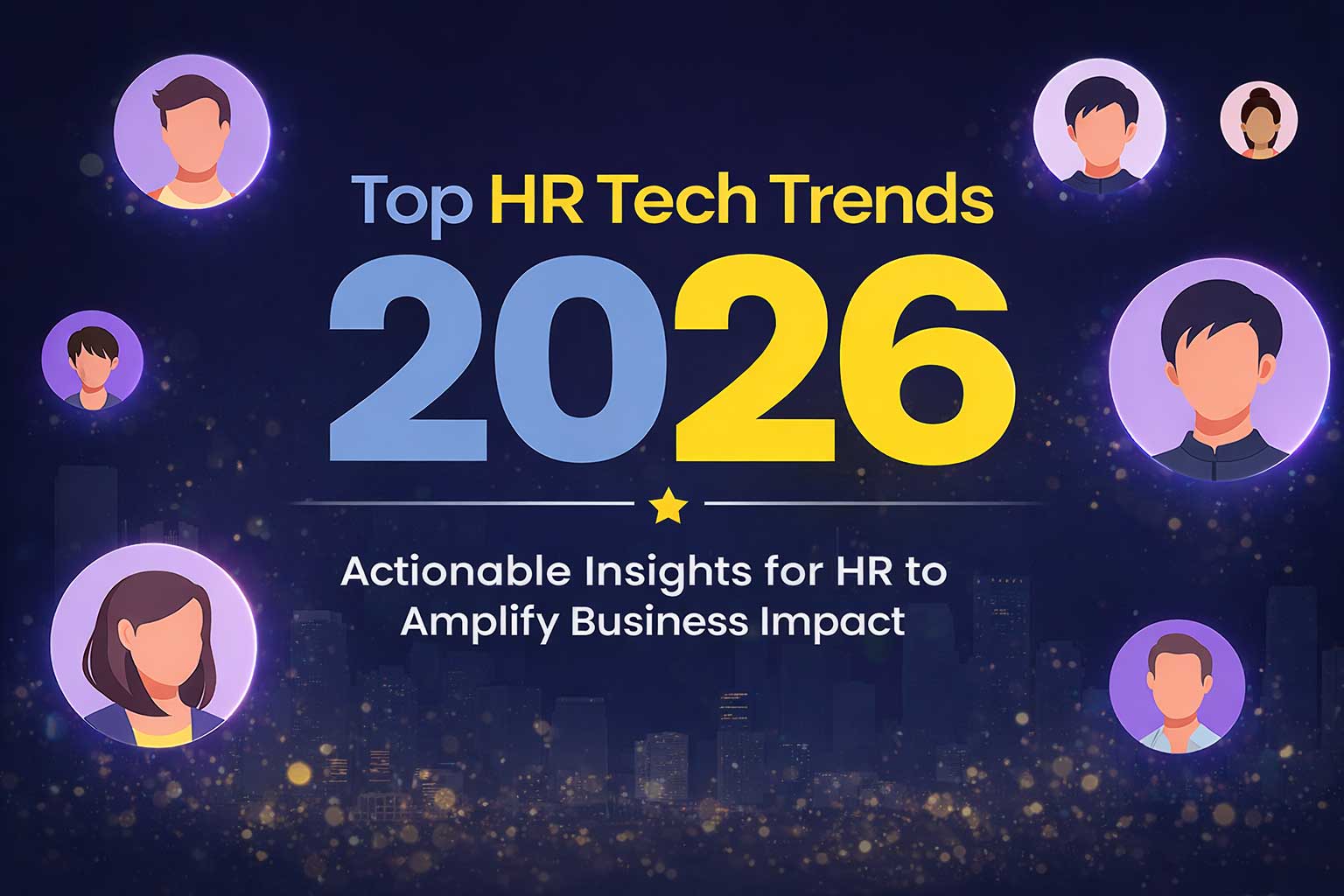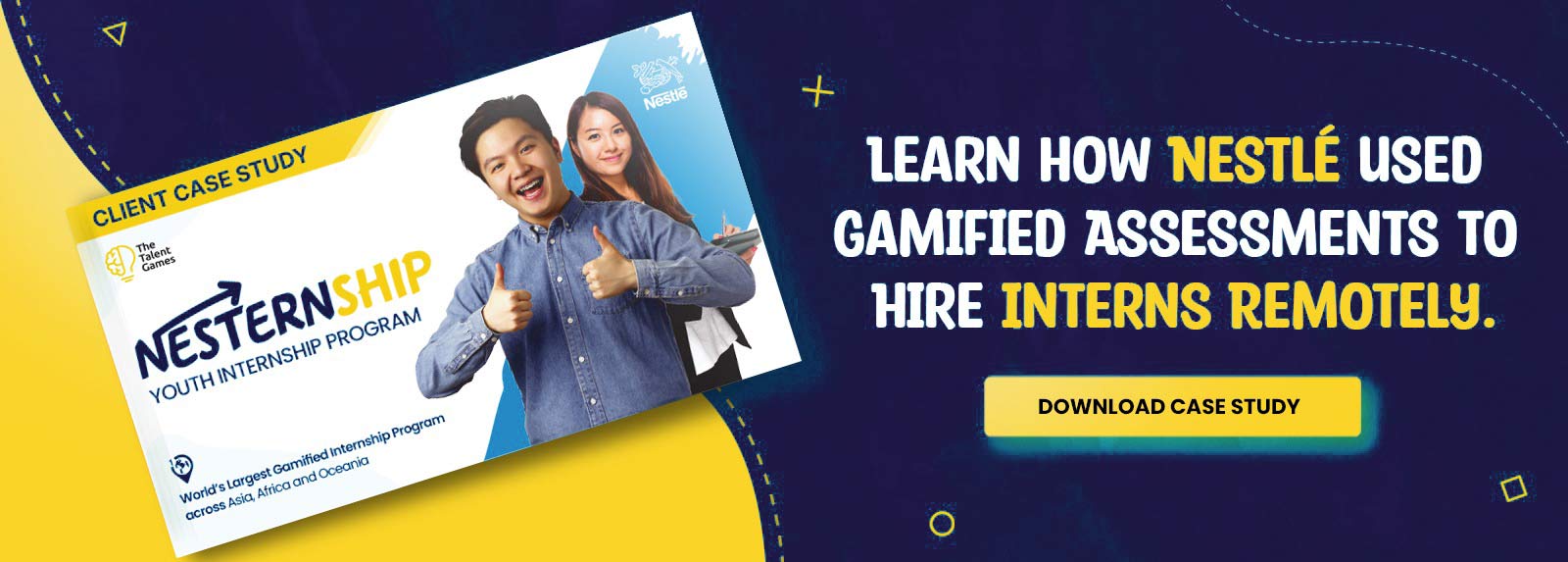The HR landscape has been evolving with the introduction of new technologies from AI to Gamification in recruitment. In this blog, we uncover the key HR Tech trends in 2026 poised to take your recruitment strategies to new heights.
HR Tech Trends 2026: From automating repetitive tasks to predicting talent needs before they arise, HR technology has evolved from a support function into a strategic driver of business success.
Previous year, innovations like Generative AI, skills-based hiring platforms, and intelligent onboarding tools redefined how companies attract, develop, and retain talent. Now, as we enter 2026, HR leaders are shifting focus toward sustaining that momentum, leveraging technology not just for efficiency, but for building resilient, future-ready workforces.
Despite economic uncertainties, 89% of HR leaders plan to increase their HR tech budgets in the year ahead, making it the single biggest investment area. The challenge isn’t just adopting new tools, it’s knowing which trends will truly move the needle on productivity, culture, and employee experience.
In this blog, we’ll explore the top HR Tech trends of 2026 that every HR leader should know to craft impactful strategies, boost engagement, and stay ahead in the ever-evolving talent landscape.
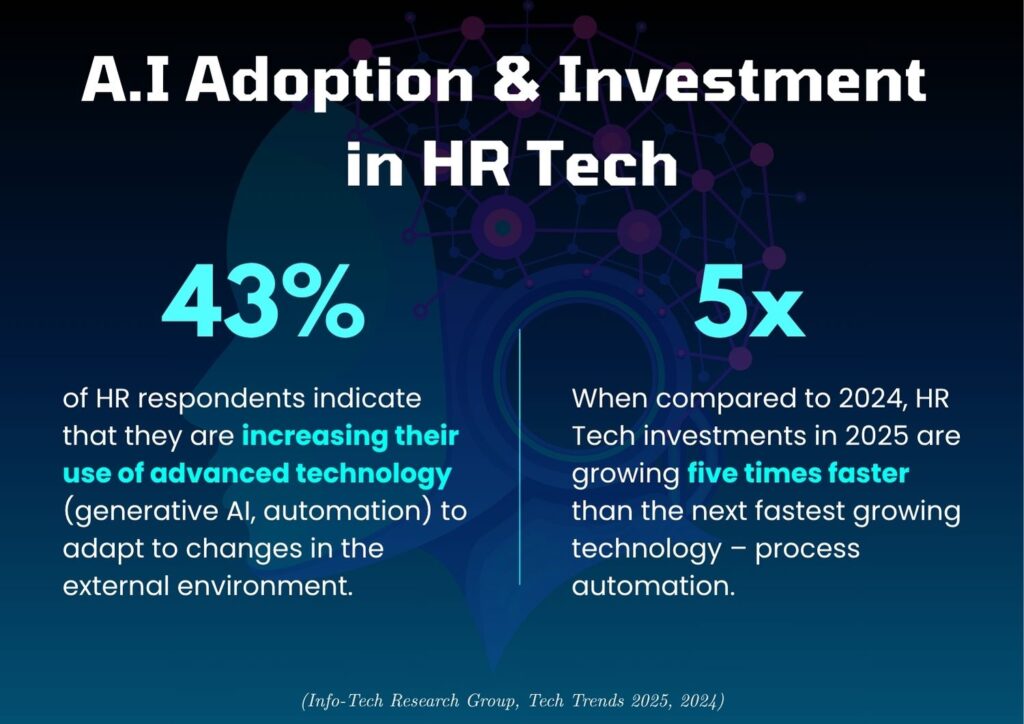
Top 10 HR Tech Trends 2026
- Agentic AI in Recruitment
- Gamification in Recruitment
- Use of Chatbots
- Blockchain-Powered Talent Acquisition
- The Rise of Gamified Behavioral Assessments
- Emotional & Contextual AI Transforms Hiring
- Tech-Enabled Boomerang Hiring
- Smart Work Force Planning
- Embracing Cloud-Based Systems
- Promoting an Inclusive and diverse work culture
- Bringing Employee Experience to the Spotlight
TREND #1: Agentic AI Claims More Recruiting Tasks in 2026
Agentic AI is moving beyond simple prompts to executing recruitment tasks autonomously. In 2065, systems now handle resume screening, candidate ranking, and interview scheduling with minimal supervision.
A recent survey found that 62% of organizations expect returns exceeding 100% from agentic AI deployments, with an average projected ROI of 171%. This level of efficiency is shifting recruiters’ focus toward high-value activities such as candidate engagement and strategic decision-making.
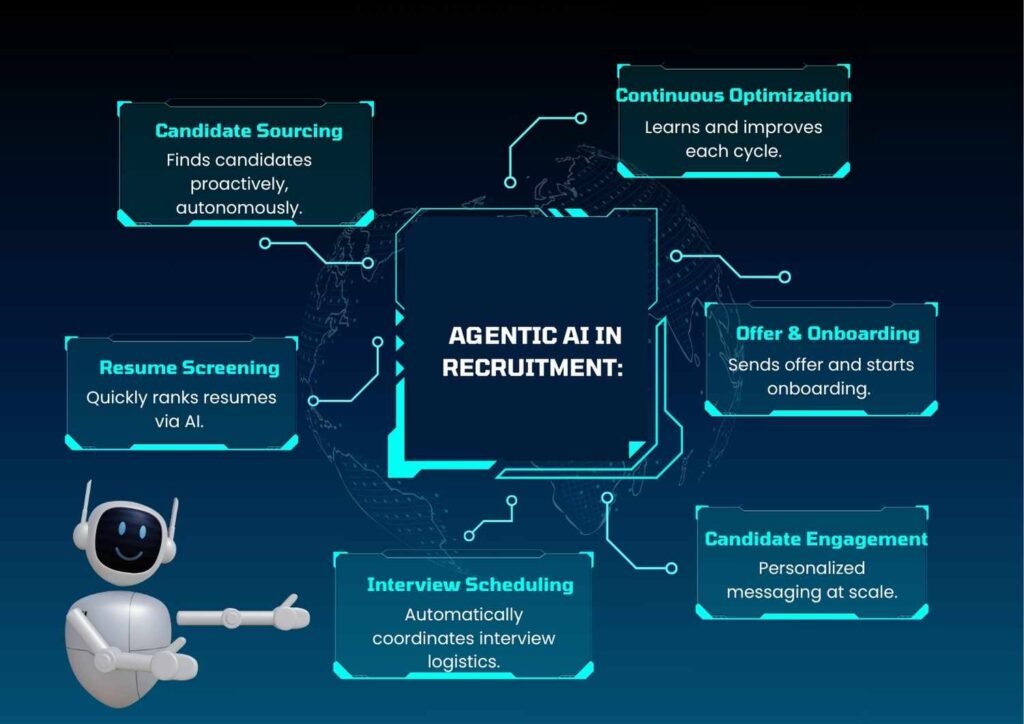
TREND#2: Gamification in Recruitment
Gamification in recruitment refers to the practice of incorporating game elements and mechanics into the recruitment process to engage candidates, assess their skills, and solve one of the top challenges of Large-Volume Hiring which is to enhance the overall candidate experience.
Gamified assessments aim to make the recruitment process more interactive, enjoyable, and immersive for candidates while providing valuable insights to recruiters. It is becoming one of the most effective HR Tech trends because it does not only help in recruiting talent without any biases involved but also, it boosts employer branding as well.
Gamification in recruitment is not completely a new trend but that is an innovation that is extensively increasing for employee engagement and assessment.
It provides leaderboards, rewards, and badges (whether virtual or physical) that can be used to enhance the training of the employees and encourage completion.
TREND#3: Use of Chatbots
The numerous HR tasks from recruiting, and onboarding new talent to tracking the performance of the employees can turn out to be repetitive and exhausting. For instance, HR teams have to spend most of their time responding to the same questions. Chatbots which are conversational AI will help organizations automate dull HR tasks for instance:
- Scheduling interviews
- Responding to the candidates’ questions
- Answering employee FAQs
- Managing leave requests by processing them in absence management
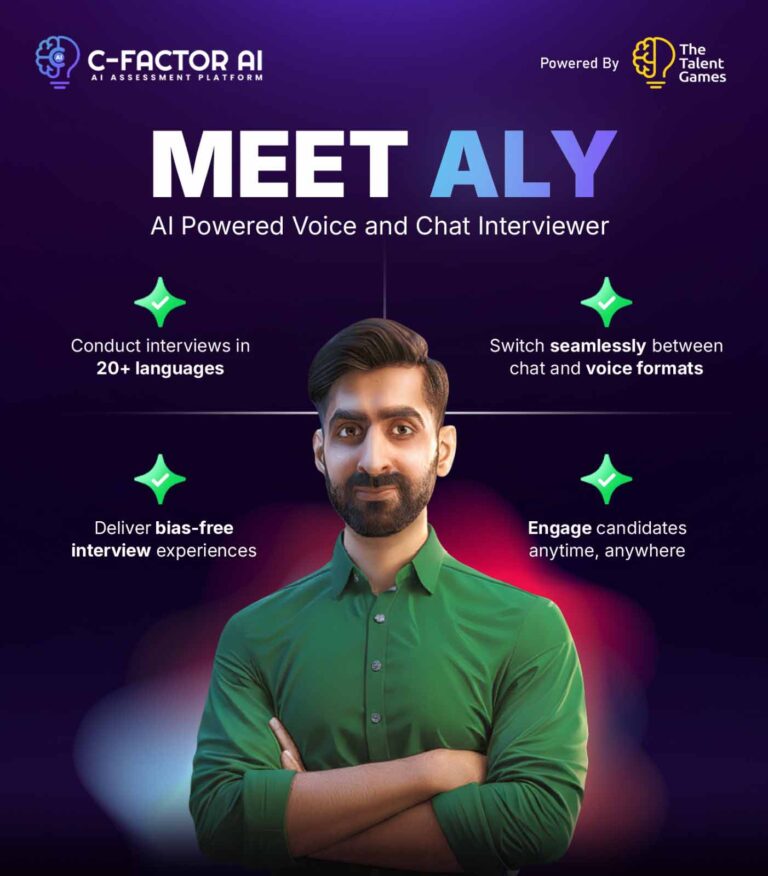
Aly by C-Factor.AI represents the next evolution of AI chatbots in HR—moving beyond scripted conversations to intelligent, assessment-aware interactions.
Designed specifically for talent assessment and development, Aly guides candidates through gamified journeys, clarifies tasks in real time, and reduces anxiety during evaluations. For recruiters, Aly acts as a smart assistant that supports consistency, fairness, and scalability across high-volume hiring.
Unlike generic HR chatbots, Aly is deeply integrated into assessment logic, not just FAQs. In 2026, this shift toward context-aware AI companions is redefining how candidates experience digital hiring.
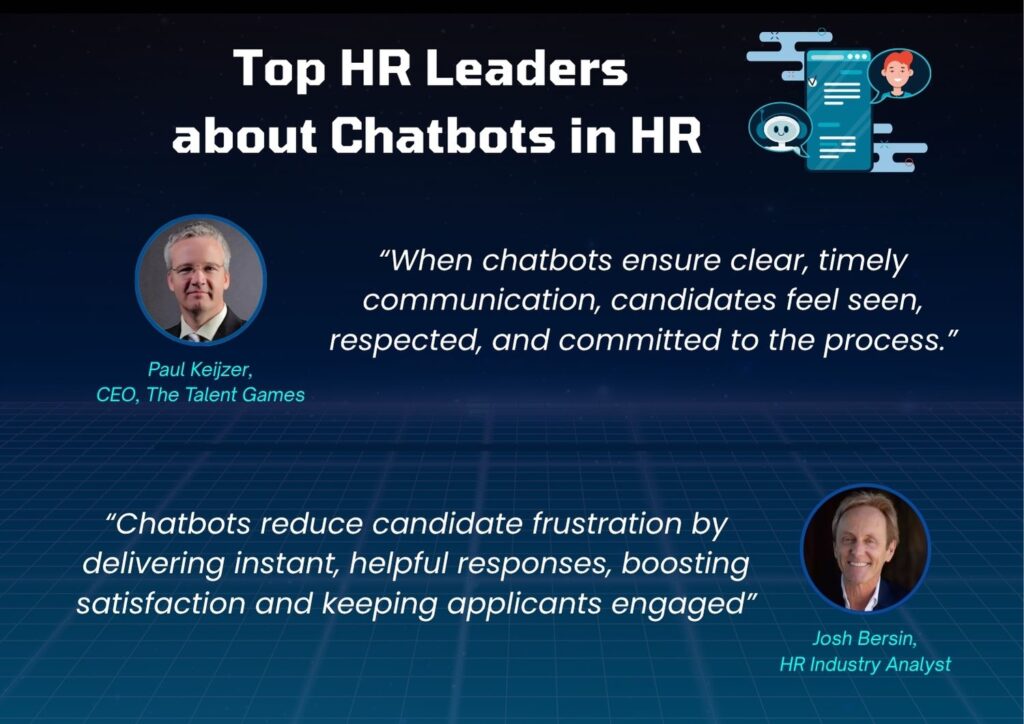
TREND#4: Blockchain-Powered Hiring
Picture a hiring process where candidate credentials are instantly verifiable and fraud-proof. That’s the promise of blockchain in recruitment. When institutions like MIT issue digital diplomas via blockchain-based wallets, they become immutable and shareable by candidates and no registrar call required.
Recruiters get accurate, trustworthy proof of education and certification in seconds. Real-world pilots show credential verification time cut by up to 75%, along with major reductions in administrative workload.
This matters most in highly regulated sectors, like healthcare, finance, or global startups, where trusting candidate data quickly is essential for smart, efficient hiring.
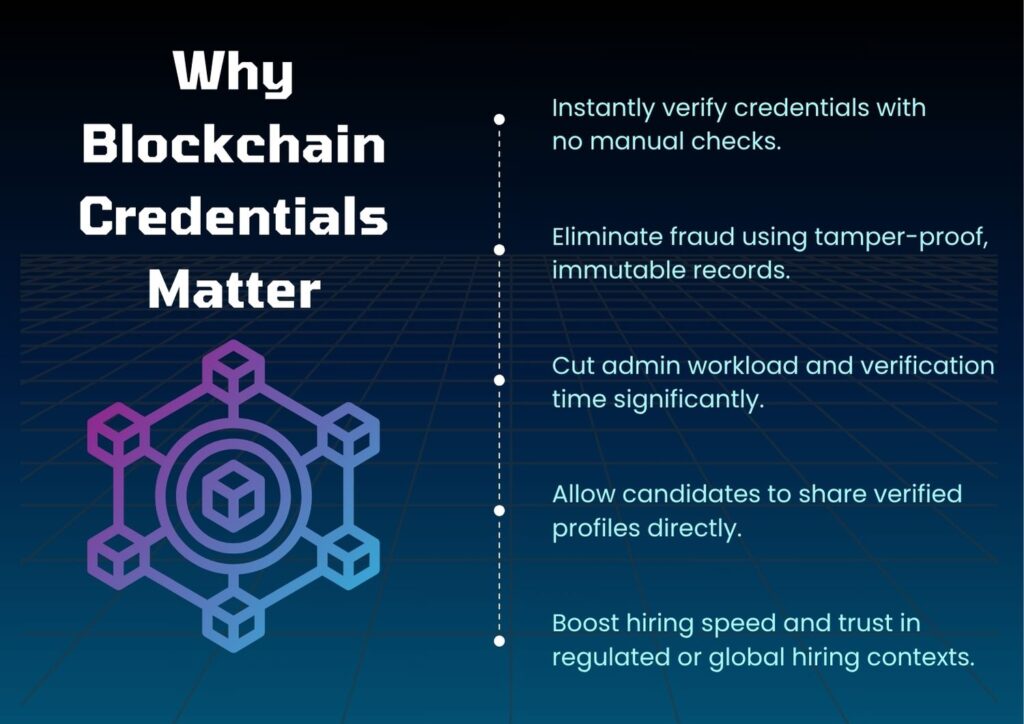
Trend#5: Rise of Gamified Behavioral Assessments
Gamified behavioral assessments are redefining how organizations evaluate candidates by making the process immersive, fair, and competency-driven. For instance, a global football organization leveraged these tools to hire over 20,000 volunteers for the World Cup in Qatar.
These assessments measured critical traits like adaptability, collaboration, and passion alignment, delivered at scale with engagement and efficiency. In a similar vein, HBL introduced bilingual gamified assessments to recruit thousands of Cash Officers, accelerating hiring, improving employer brand, and enhancing candidate experience. These interactive assessments showcase values beyond resumes, strengthen employer reputation, and foster a sense of fairness from the first touch.
We’ve seen top companies like Nestle, Shell, Bupa, and various others relying on behavioral assessments for hiring candidates. This has become one of the vital HR Tech trends signifying a strategic shift towards more holistic and data-driven approaches in the hiring process.
TREND#6: Emotional & Contextual AI Transforms Hiring
At HR Tech Trends number 6, we spotlight Emotional & Contextual AI. It is the technology that goes beyond words to understand how candidates feel and the context of their applications. Emotional AI decodes subtle signals like facial expressions, tone, and body language. Contextual AI then adapts screening and interview processes based on a candidate’s background, the job role, and organizational culture. This combo enables more nuanced, fair, and personalized hiring.
In structured interview settings, tools like Furhat’s robot, but without human biases, ensure equitable assessments. A recent academic study demonstrated that AI that focuses on actual skill over sentiment reduced emotional bias by 41.2%, a tangible improvement in fairness and inclusion.
These systems free recruiters from rote evaluation, allowing them to prioritize empathy, nuanced judgment, and cultural alignment—redefining recruitment as a collaboration between AI insight and human intuition.
TREND#7: Tech-Enabled Boomerang Hiring
In 2026, companies aren’t just passively hoping valued ex-employees return, they’re using HR tech to actively bring them back. AI-powered talent relationship management platforms such as Beamery, Avature, Phenom People, Eightfold AI, and GR8 People enable organizations to maintain detailed alumni talent databases, track the career progress of former employees, and receive alerts when their skills align with current openings.
Digital alumni communities, video-first onboarding tools, and skills verification systems mean that re-hiring top talent is faster, cheaper, and more effective than sourcing brand new candidates. With proven cultural fit, institutional knowledge, and minimal ramp-up time, tech-enabled boomerang hiring is becoming a strategic recruitment advantage.
TREND#8: Smart Workforce Planning
In a complex economy, there is no guarantee that your workforce strategy will be as effective in the coming year as it was in the previous one. Talent managers will need to be more strategic in their future planning for a better understanding of their needs. To do this, they must disintegrate gaps and work with business leaders across all activities.
In the coming years, AI is going to be more helpful in predicting and determining the appropriate roles, skills, and geographies for the changing business. Employers’ hiring procedures are slowing down hiring as per recruiting trends. Additionally, if the industry does undergo a recession in 2026, businesses will need to re-invent their workforce planning and do new hiring much more cautiously.
To be able to deal with every kind of risk in the economic environment, talent acquisition professionals must carry out scenario-based workforce strategy plans and do a proper risk assessment. Within every case, they should be able to consider both the company’s crisis and quick recovery.
TREND#9: Embracing Cloud-Based Systems
The cloud-based systems are necessary to keep the employees connected and they don’t keep connected only the employees in the office but also the ones who are working remotely. Organizations are implementing these systems to keep up with technological advancements. Human Capital Management solutions or HCMs – powered by cloud technology are going to be essential tools for HR who can access real-time data of the employees to from any place at any time and make effective decisions.
TREND#10: Using Technology for Inclusive and Diverse Work Culture
The organizations are once again emphasizing on creating an inclusive and diverse workplace culture in 2026. There are companies that have already embraced the diversity and inclusion concept whereas, there are others that are still struggling to embrace it.
According to the Director of Inclusion & Diversity at Deloitte, companies with inclusive culture are “twice as likely to meet or exceed financial targets and far exceed their business outcomes” as compared to companies without inclusive culture. There is a growing number of modern workplaces that have started using D&I (Diverse and Inclusive) technologies for talent acquisition along with sourcing and selection.
TREND#11: Bringing Employee Experience to Spotlight
Organizations are spending money more than ever before for improving employee experience from onboarding to employing cloud solutions for effective communication. With the exponential development in technology, managers in HR now have the relevant tools to offer a seamless experience to candidates by employing solutions such as gamification, psychometrics, and other engaging solutions. Companies have realized that giving prior attention to the employee experience is the key to success.
Conclusion
Staying abreast of HR Tech trends remains essential as we navigate the dynamic landscape of Human Resources. In a future steered by continuous innovation and automation, adopting cutting-edge HR technologies is paramount.
Integrating these advancements into HR practices not only ensures efficiency but also lays the foundation for a workplace geared toward the future. We trust that the insights into the HR tech trends of 2026 have provided valuable perspectives for building a forward-looking and adaptive workplace.
FAQs
1. Are game-based assessments suitable for all job levels?
Industries like banking, consulting, retail, and tech are leading the adoption of gamified assessments. They help assess competencies like leadership, analytical thinking, and emotional intelligence. Even healthcare and government sectors are exploring gamification for hiring.
Do gamified assessments eliminate hiring bias?
While no method is 100% bias-free, gamified assessments reduce biases by focusing on performance rather than resumes or backgrounds. AI-driven scoring ensures fair evaluation based on skills and behaviors. This leads to more diverse and inclusive hiring.
What are the best gamified assessment platforms in 2026?
Leading gamified assessment platforms include The Talent Games, Pymetrics, and HireVue. These platforms use AI and behavioral science to evaluate candidates’ skills in an engaging way. They help companies assess problem-solving, teamwork, and decision-making abilities.
How does HR technology improve candidate experience in 2026?
HR tech enhances candidate experience through AI chatbots, personalized job recommendations, and gamified hiring processes. Automation reduces hiring delays, while interactive assessments keep candidates engaged. A smooth, tech-driven hiring process improves employer branding.
Who are the top HR tech leaders to follow in 2026?
Some of the most influential HR tech leaders include Josh Bersin (HR Tech & AI Expert), Paul Keijzer (CEO, The Talent Games), Jeanne Meister (Future Workplace), and Lars Schmidt (Modern HR & Tech Innovator). These thought leaders share insights on AI in HR, gamification, and digital transformation in recruitment
